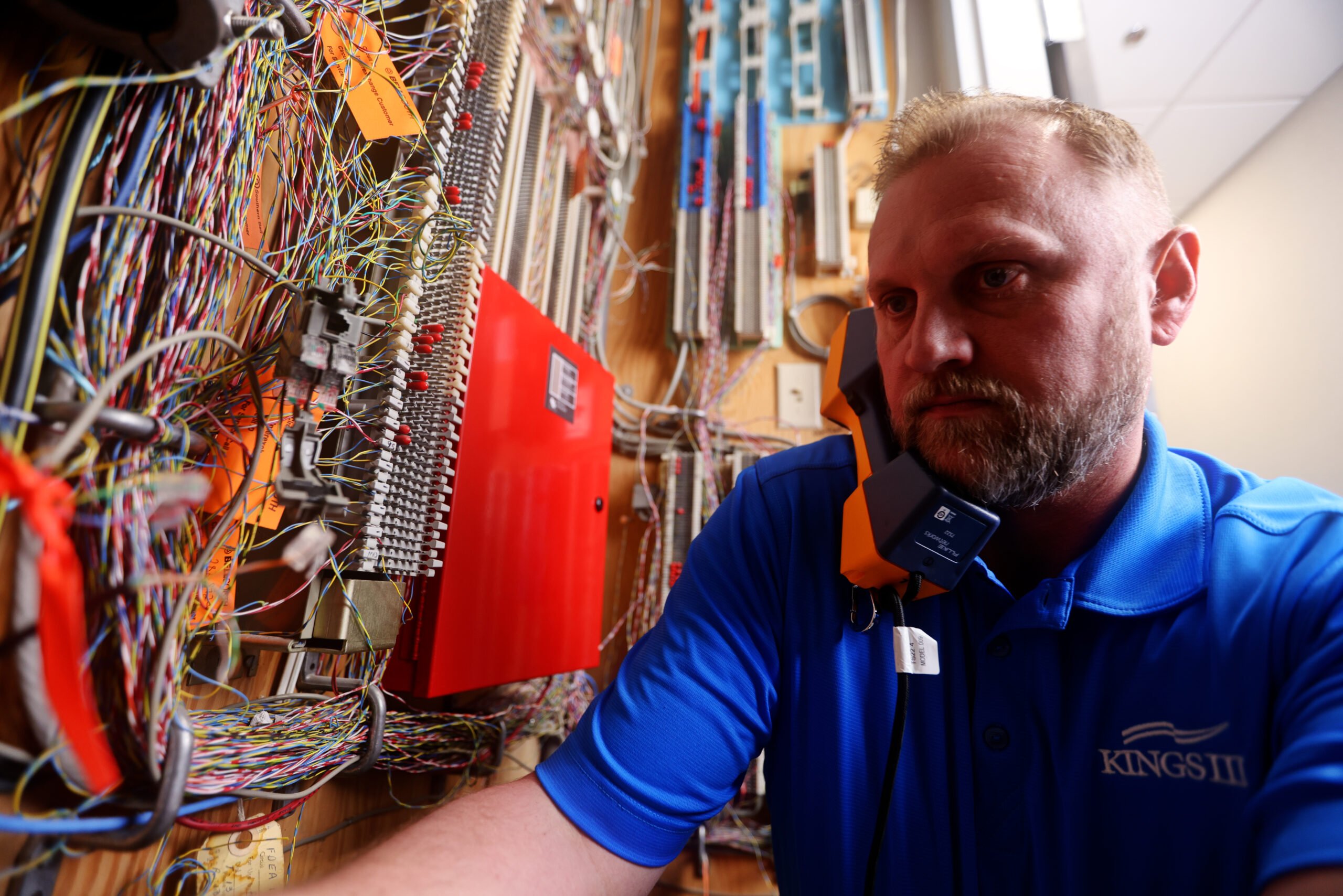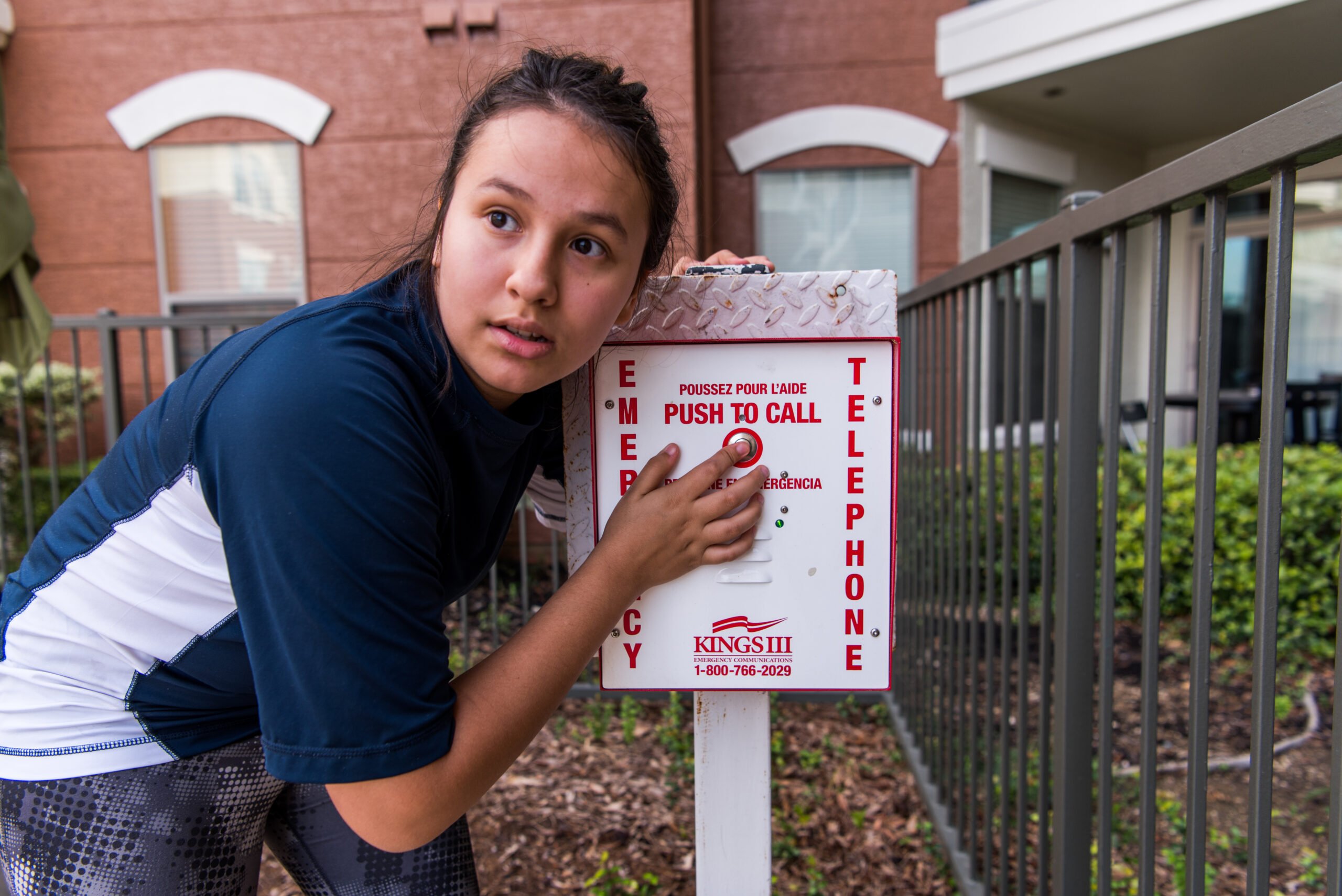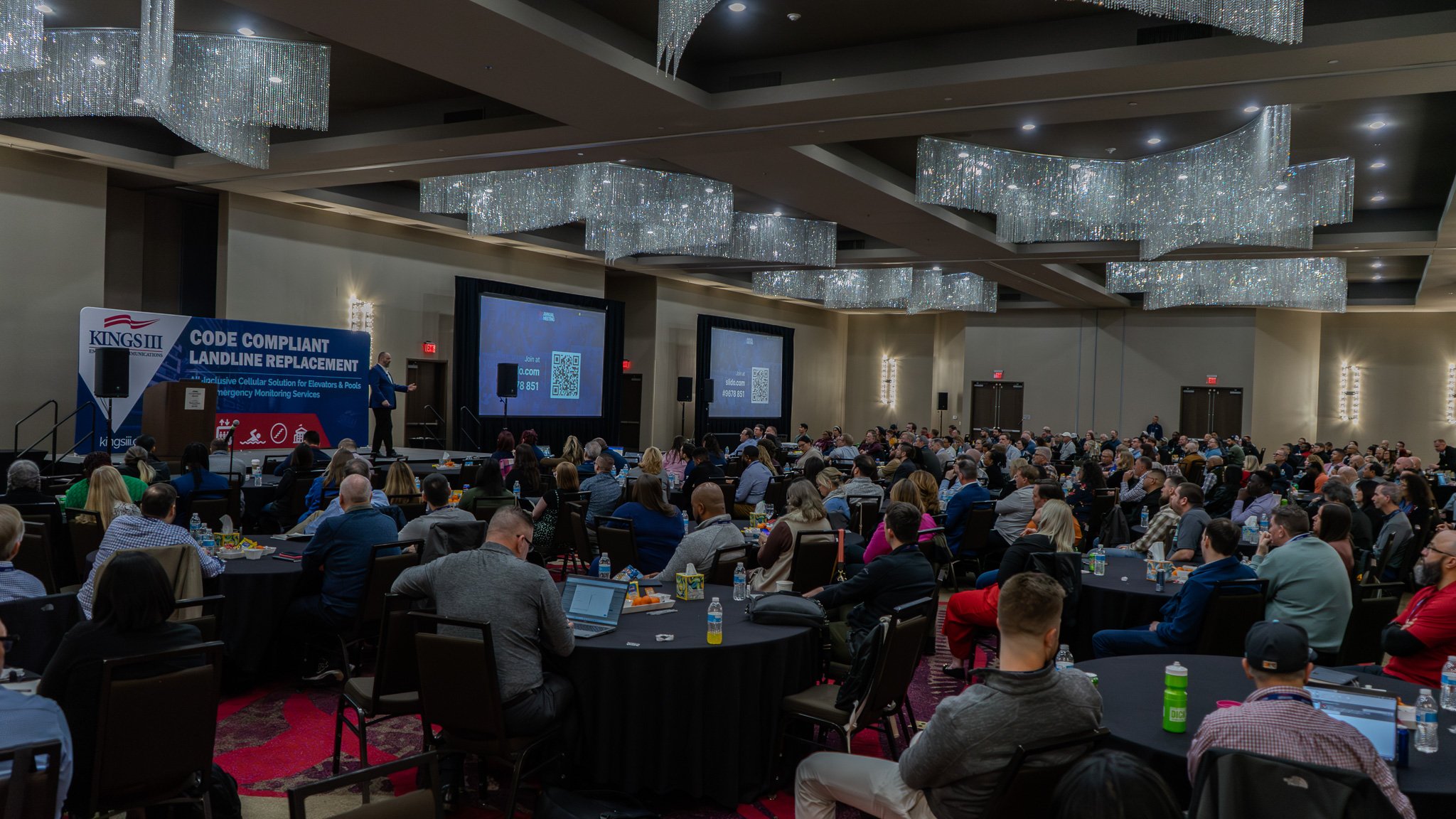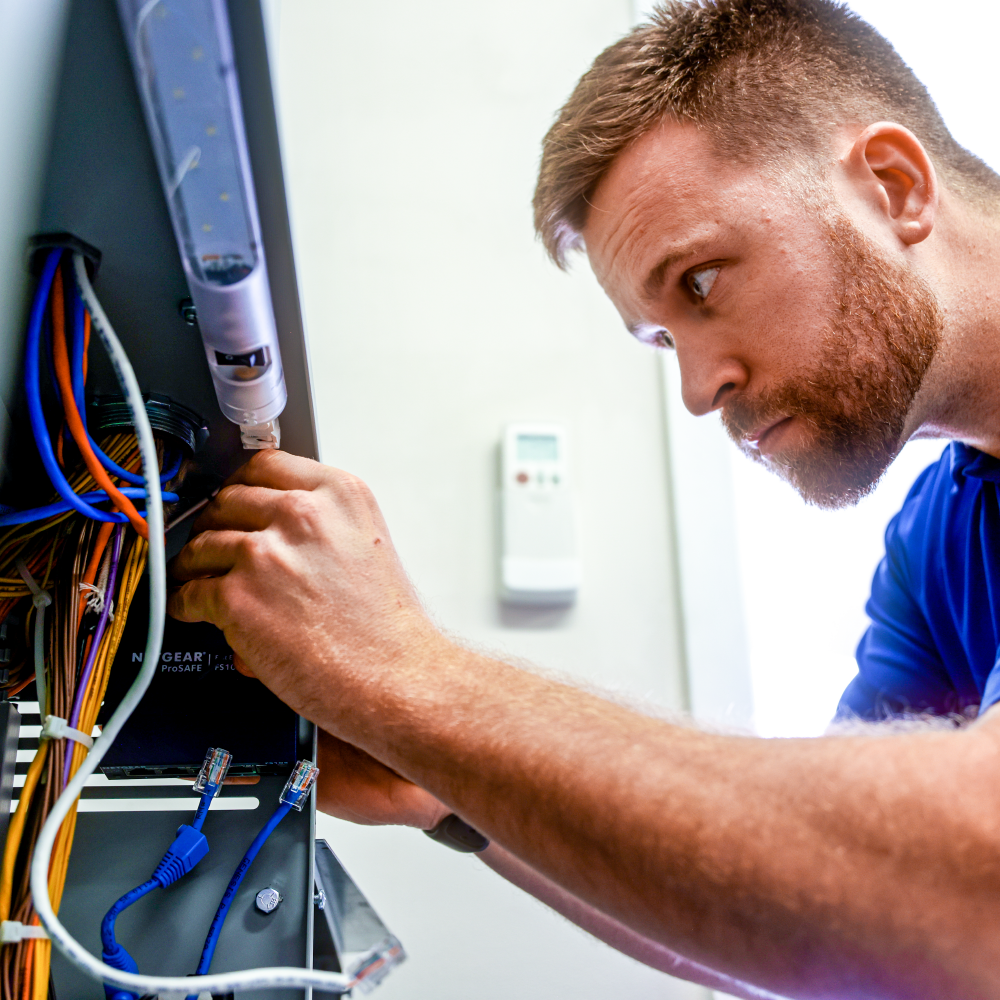BLOG CATEGORIES
How Your Life Safety Devices are Impacted by Landline Technology Phaseout

Have you ever played the telephone game? You know, it’s where you sit in a circle and one person starts by whispering something in their neighbor’s ear, and by the time the message gets around to the last person in the circle it doesn’t really resemble the original? That’s kind of what’s happening in the telecom industry with FCC Order 10-72a1. In my world, there’s been a lot of chatter about the “FCC mandate” and how it is impacting copper/analog/plain old telephone service (POTS) phone lines. It’s interesting what information people hold on to (and what they don’t) so let’s talk about what the FCC actually said.
In August of 2019, the FCC issued an order removing the burden of complying with two regulations passed in 1996 and allowed certain telecom companies the opportunity to no longer service traditional phone lines. So while there was no actual, “you have to stop servicing POTS lines” decree, there is an impact to those using copper lines. One of the most immediate, since telecom companies are no longer maintaining the lines, is deteriorating service. The second would be significantly higher phone line costs. In fact, we’ve seen up to $1,200 on California customers’ phone bills. And then of course there’s always the (highly likely) possibility that one day your phone could just stop working altogether. So, while not a mandate, landline replacement is very much a timely issue warranting your attention, with special care given to your emergency phone lines.
What’s next for your emergency phones?
So what are the best options since now more than ever we need reliable communication? Voiceover Internet Protocol (VoIP) is the most common option we hear discussed. VoIP is great for general telephony in your building but when it comes to emergency communications it’s not usually code-compliant. Issues like caller identification, being able to call back into an elevator cab and battery backup cause most VoIP systems to fail emergency elevator phone inspection. Not to mention most IT teams aren’t in favor of others having access to their internal network.
Cellular as a solution
We’ve all become so dependent on that little mobile device we carry in our pocket, and that same cellular technology is a perfect solution for emergency communication, especially in your elevator. Not only does it leverage the mobile network, but it is also a completely code-compliant solution for both the International Building Code (IBC) and the American Society of Mechanical Engineers (ASME).
Kings III’s Skyline cellular solution
Another advantage to cellular with Kings III over other options is access to FirstNet®; the only nationwide high-speed broadband communications platform built with and for first responders. It’s a communications fast lane with a dedicated network capacity and resilient hardened connection and the FirstNet network reaches locations where coverage is often spotty or difficult.
Old habits are hard to break but while the old technology is no longer being supported, there are better options with even greater benefits and newer technologies are creating opportunities that will enable you to:
- Increase safety and reliability
- Mitigate risk and liability exposure
- Improve tenant experience
- Reduce costs
All cellular emergency phone solutions are not created equal. You need a solution specifically designed for emergency use, especially if you want a consistently dependable response. Our Skyline cellular solution completely eliminates dependency on POTS lines by leveraging the nationwide VoLTE mobile network, to provide a reliable code-compliant solution for your emergency phones. Connect with an expert at Kings III today to find out more on how to improve safety and reduce costs at your property utilizing our cellular solution here.
CATEGORIES TAGGED
CATEGORIES
KEEP LEARNING

Is Your Pool’s Emergency Phone Compliant? Here’s How to Check (And What to Do If It Isn’t)
Is your pool’s emergency phone truly compliant and ready when it matters most? A reliable, code-compliant emergency phone is more than a regulatory requirement—it’s a critical lifeline that ensures immediate access to help during emergencies. This guide walks you through how to check compliance, properly test your phone, and take the right steps if it doesn’t meet current standards. Whether you're ensuring your current system is up to code or exploring a more dependable solution, we’ll help you navigate the process and safeguard both safety and liability.

8 Women Who Shaped the Future of Emergency Response & Dispatch
This Women’s History Month, Kings III is honoring the women who have paved the way in emergency response and dispatch. From breaking barriers in EMS to pioneering advancements in emergency communication, these trailblazers have helped shape the way lifesaving services operate today. See eight influential women whose contributions continue to impact the field and inspire future generations.

Honoring Black Pioneers: 7 Influential Figures in Emergency Communications & Response
This Black History Month, Kings III is honoring Black men and women who served as pioneers in the fields of emergency dispatch and emergency response. See 7 influential trailblazers who broke barriers, advanced life-saving technologies, and shaped the way emergency services operate today.

How Recent Spikes in Copper Theft Threaten Your Emergency Communication & What You Can Do About It
Rising copper theft is putting emergency communication systems at risk, leading to potential service outages. Without a reliable backup, property managers may face compliance issues and safety concerns. Learn more about the threat and how a cellular solution can help protect your property.

Is Your Hotel’s Emergency Communication System Up to Code?
Hotel emergency communication systems must meet strict safety and compliance standards, but are yours up to code? From elevator phones to pool and parking lot emergency call systems, we break down key requirements and how to ensure your property stays compliant.

Kings III & Wurtec Partner to Improve the Emergency Communication Market of Elevator Video Messaging Systems
Kings III Emergency Communications partners with Wurtec to enhance elevator video messaging systems, addressing new code requirements for two-way displays and video monitoring. The collaboration combines Kings III's emergency response expertise with Wurtec's industry solutions to provide streamlined, compliant elevator safety communications nationwide.

Kings III Makes Dallas Morning News’ ‘Top 100 Places to Work’ List, Marking 5th Consecutive Award
We're honored to be recognized by our employees and The Dallas Morning News by making the daily newspaper’s Top 100 Places to Work list for the 5th year in a row, falling in at 32nd in the midsize companies category.

Updated Elevator Code: Who are my Authorized Personnel?
Confused about who qualifies as "authorized personnel" under the new ASME 17.1 elevator code? Learn why the same authorized staff must monitor all emergency communications—audio, video, and messaging—and why split monitoring solutions won't meet compliance requirements for your building's safety system.

2024 Brings Increased Adoption of Codes Requiring Video and Two-Way Messaging for Elevator Communications
As 2024 progresses, the adoption of safety codes mandating video and two-way messaging capabilities for elevator communications is gaining momentum across the United States.





